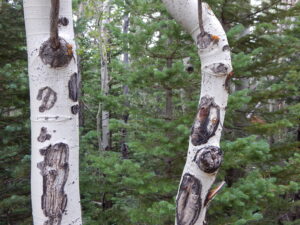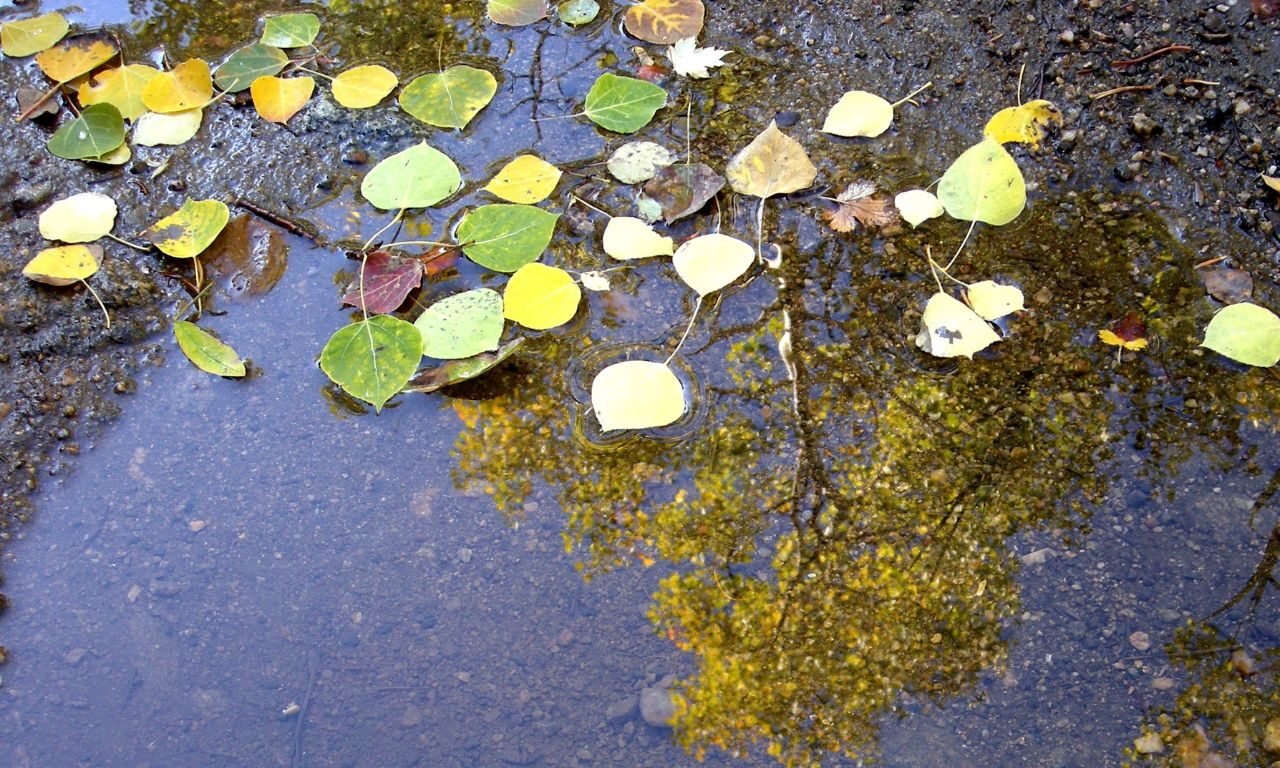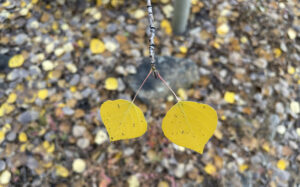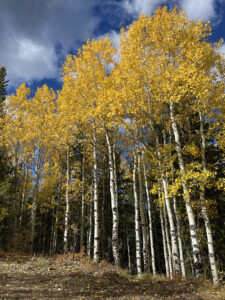My early connection to nature was based on a symbiotic relationship. I was fortunate to have never been exposed to an anthropomorphic perspective and relationship with the more-than-human world. Rather, my experience was one of poetic and spiritual resonance with all I observed — the unity that a youngster experiences before labels are introduced and his ways of seeing are irrevocably altered. What I witnessed in nature were not external objects separated from me, but rather reflections of myself bringing me back home in moments of life when the sense of personhood eclipses one’s essence. Thus, every-thing seen has a hidden message accompanying its external appearance. I was taught to attune with nature, viscerally, rather than just observing it voyeuristically. My childhood love affair with aspen trees, which continues to this day, is an example of ways I have heeded nature’s hidden messages:
Making Visible What Is Invisible (Leaves)
I love how aspen leaves, resembling the shape of a human palm, make the sound of rain in the presence of wind, symbolizing selflessness, flexibility, and adaptability.
I will never forget the day I was captivated by the trembling leaves of an aspen grove at a young age. I suddenly had a realization: my perception shifted from merely seeing how the leaves were trembling to noticing the invisible breeze that caused them to move. I recognized that their movement was simply making visible what was invisible.
This subtle, yet profound realization gave me the choice to shift my focus to either seeing the form or allowing the form to inform me of the invisible — the presence of wind. Since then, I’ve been looking for deeper significance in everything I encounter.
Who would I be if I could see and feel the invisible as clearly as I do the visible?
Seeing Unity in the Midst of Multiplicity (Root System)
A few years back, I went on the Pilgrimage to Pando, sponsored by Pando Populus, at Fishlake National Forest in Utah. Pando is a clonal organism representing an individual male quaking aspen. On this contemplative journey to the home of the world’s largest living organism, I spent quality time in the Pando groves, where over 47,000 aspen trees share the same genes. The trees in this clone have identical features and a common root structure. They are essentially the same tree.
This was a humbling reminder that despite appearances, in essence, everything is interconnected — different forms through which the same source expresses — a reality that the naked eyes fail to see; a bluff of the mind since only the form it sees.
Who would I be if I viewed every-thing and every-one in this manner, and worked on unification and not differentiation — the principle of interconnectedness?
Pruning Away (Aspen Eyes)
 Walking through the aspen groves, I always have the feeling that I am being watched by God’s eyes. Aspen trees go through a rigorous self-pruning process. As they become overtopped, the amount of light reaching the lowest branches decreases substantially. So, aspen eyes are actually dark markings on the main trunk where side branches once lived.
Walking through the aspen groves, I always have the feeling that I am being watched by God’s eyes. Aspen trees go through a rigorous self-pruning process. As they become overtopped, the amount of light reaching the lowest branches decreases substantially. So, aspen eyes are actually dark markings on the main trunk where side branches once lived.
Their self-pruning wisdom reminds me that true insight comes only when I too choose to prune away all that no longer serves me and prevents my light — the superficial levels that are shaped by social conditioning, fears, judgments, and forgetfulness. Such conscious self-pruning has the power of unfolding the kind of inner eyes that can truly see life as it is.
Who would I be if I weren’t burdened by the accumulation of all that doesn’t serve my heart’s longing?
I invite you to discover, with an open heart and mind, the messages embedded in everything around you the next time you’re out in nature.




